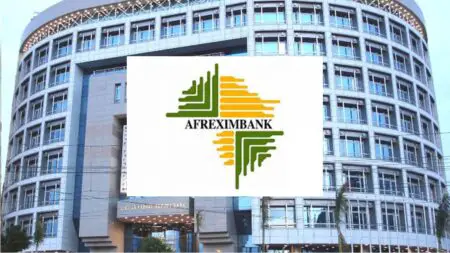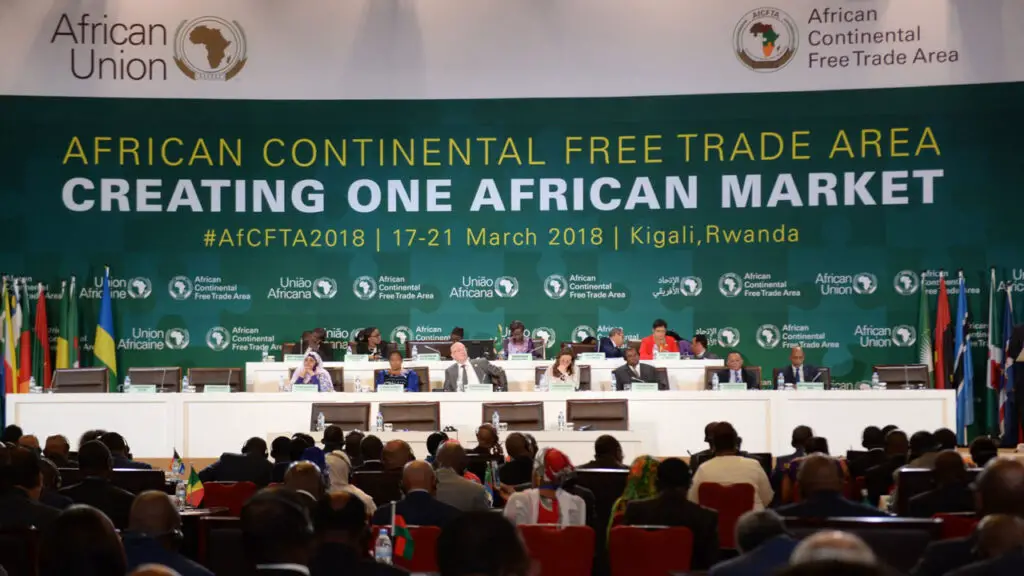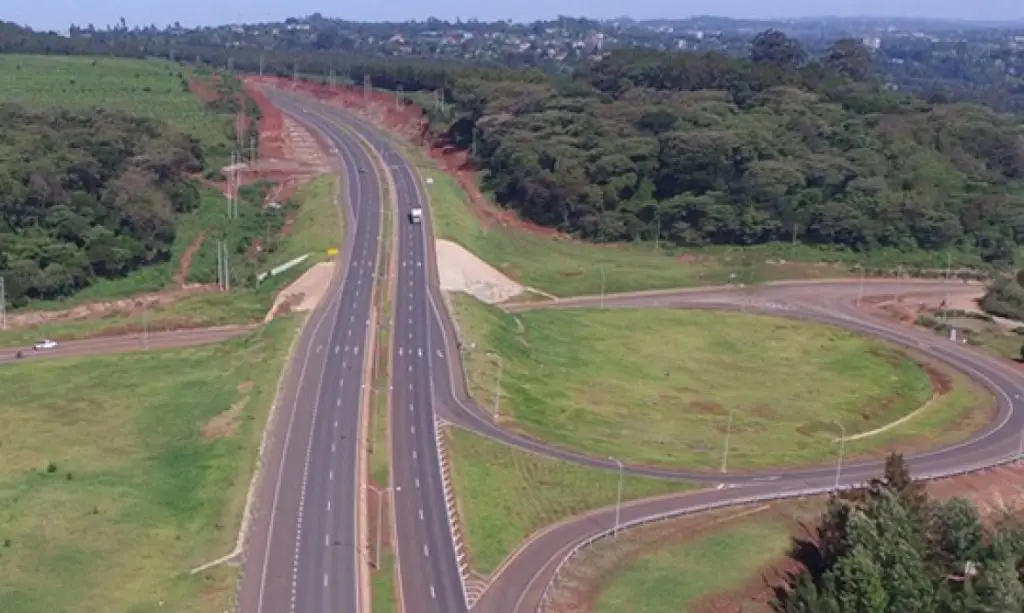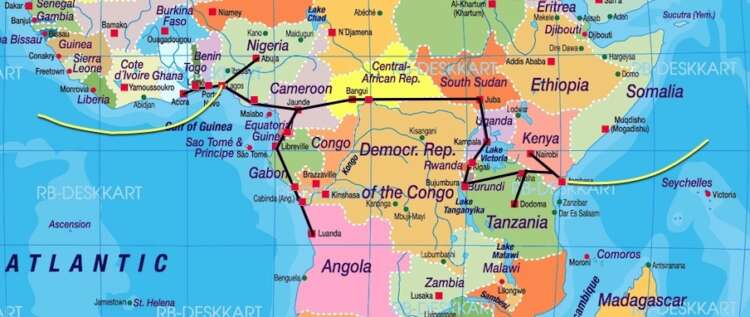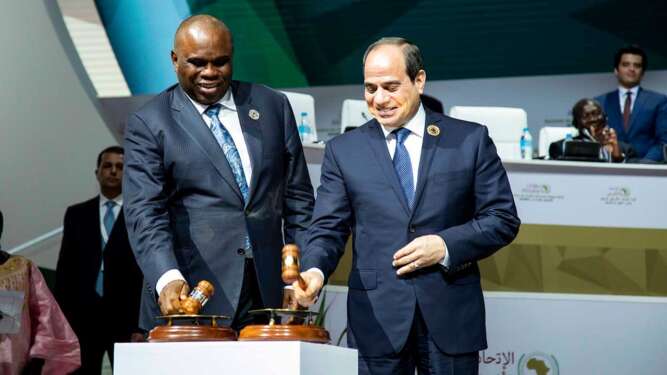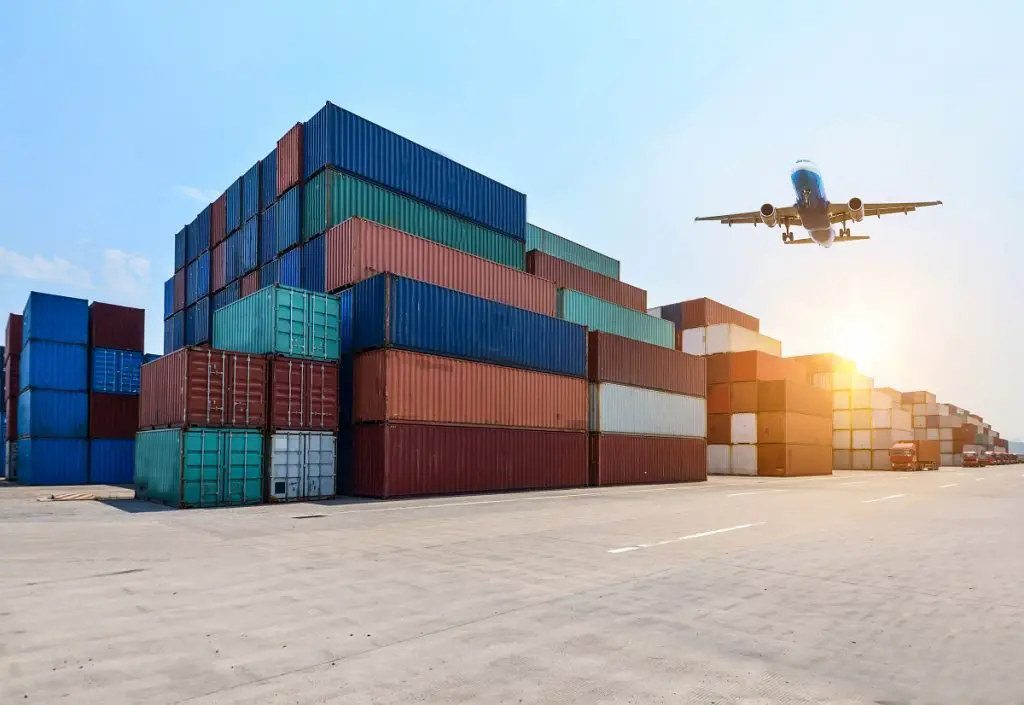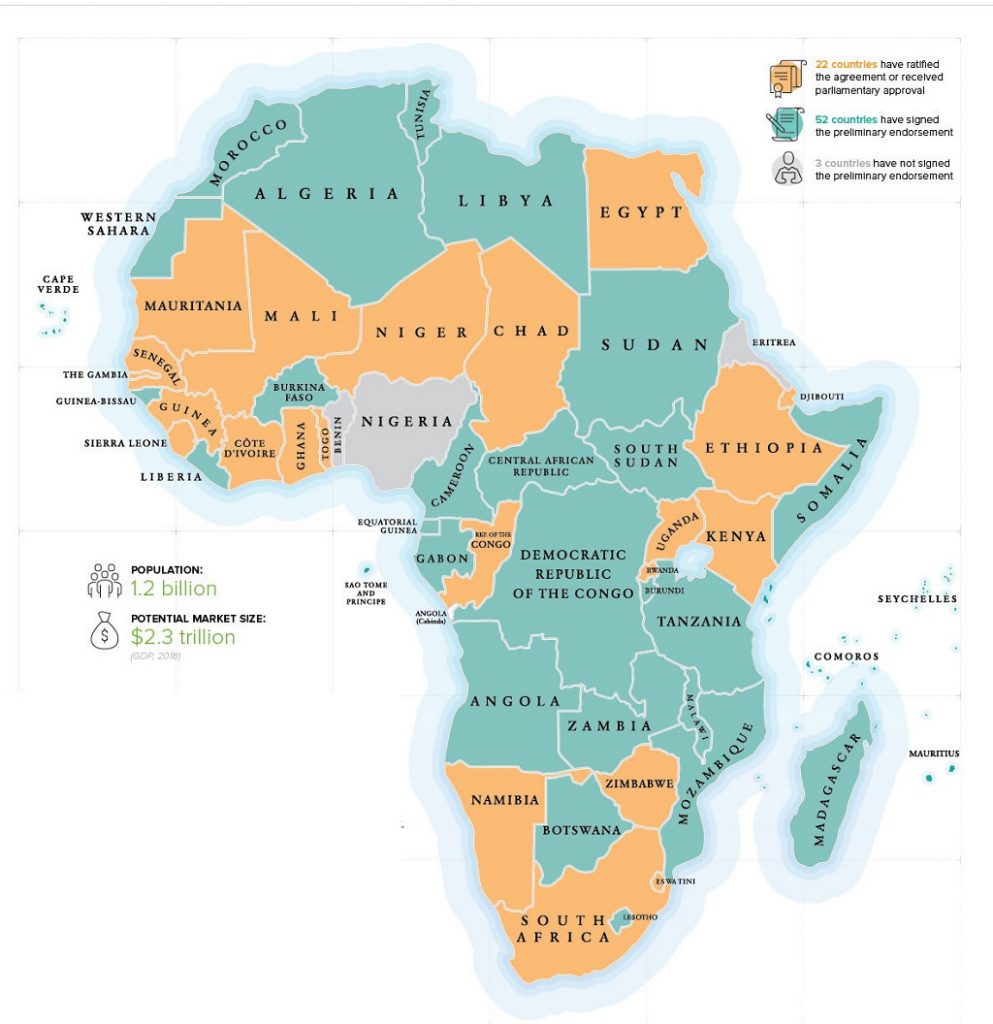- Agribusiness could drive Africa’s economic prosperity
- Dawood Al Shezawi: Why AIM Congress 2024 is the epicenter of global economic and cultural dialogues
- d.light’s 600,000 cookstoves project verified as top source of quality carbon credits
- Artificial intelligence (AI) could create a turning point for financial inclusion in Africa
- AIM Congress 2024: Catalysing global investments with awards
- Kenya’s economic resurgence in 2024
- The most stressful cities to live in 2024 exposed
- Tech ventures can now apply for the Africa Tech Summit London Investment Showcase
Browsing: Africa Continental Free Trade Agreement
- Afreximbank and Nigeria’s Anambra State have partnered to advance the state’s “Smart Mega City” vision and foster economic growth in Africa.
- The partnership involves an MOU that seeks to offer project preparation and advisory services for state development.
- The collaboration opens the door to a potential debt financing of up to $200M, which could support the realization of transformative projects.
The African Export-Import Bank (Afreximbank) and Nigeria’s Anambra State have entered into an agreement to accelerate the region’s vision of becoming a “Smart Mega City”.
In an agreement signed during the Anambra Investment Summit, the partnership also underscores Afreximbank’s commitment to fostering economic growth and development across Africa.
The MOU, signed by Afreximbank’s Executive Vice President, Intra-African Trade Bank Kanayo Awani and the Governor of Anambra State, Charles Soludo, signifies a collaborative effort to drive state development through the provision of project preparation and advisory services.
It also opens …
- The agreement reaffirms the US commitment to elevating a strong private sector voice in AfCFTA implementation.
- Through exploring these challenges and opportunities in-depth, the U.S.-Africa Leaders Summit seeks to chart new avenues for improved U.S.-Africa cooperation.
- The business forum focuses on growing the commercial partnership between the U.S. and Africa, with priority discussion topics including the U.S.-Africa commitment to trade and investment.
The United States Chamber of Commerce’s U.S.-Africa Business Center (USAfBC) and the African Continental Free Trade Area Secretariat (AfCFTA) on Wednesday signed a Memorandum of Understanding (MoU) to launch a working group to help advance trade and investment between the U.S. and Africa.
The agreement reaffirms the US commitment to elevating a strong private sector voice in AfCFTA implementation.
Scott Eisner, President of the U.S.-Africa Business Center, said coordination between the private sector and the AfCFTA is key to unlocking Africa’s full economic potential.
“As the world’s leading …
Africa’s road infrastructure remains essential for landlocked countries, where opening manufacturing zones are needed. Reliable road transport is required for businesses to import and export goods, complete orders, and procure supplies.…
There are five key instruments adopted for the AfCFTA…
The countdown to the commencement of trading under the African Continental Free Trade Area is drawing to an end.
The world celebrates the coming of a new year with the hope of a reprieve from the chaos and hardships that 2020 brought. For Africa, the New Year’s Eve celebrations bring hope for a brighter future. A future with Africa no longer the dark forgotten continent left behind by the rest of the world. Neither engulfed by poverty, inefficiency, and negativity nor identified by conflict and hopelessness.
A future where Africa stands shoulder to shoulder with economic giants. Where economies of scale and scope position African manufacturers favorably. Where African economies boast integrated efficiencies and world-class digital infrastructure. Where road networks and physical infrastructure on the continent take a turn for the better. Where Africa means business and has the trade statistics to prove it.
Africa is going for gold and …
How the digitalization of African trade will help realise the AfCFTA
The digitalisation of trade across the continent can significantly boost free trade in Africa, helping to realize the objectives of the Africa Continental Free Trade Agreement (AfCFTA).
To properly implement the AfCFTA, Africa will need digitalisation in the digital and virtual services and making it an enabler of trade in the different sectors.
By 2030, Africa’s population will have grown from the current 1.2 billion people to an estimated 1.7 billion. With this growth, the AfCFTA has to create an integrated African market for these consumers. The aggregated gross domestic product (GDP) from this market could see the market hit US$3.4 trillion after the opening up of the continent’s economic borders.
Read: Africa’s Cashless Payment Revolution
There are, however, various issues such as harmonising standards and improving the existing legal frameworks; enacting cybersecurity, consumer and data protection laws; and …
Economic Partnership Agreements and the Continental Free Trade Area negotiations have focused on the speed at which tariffs are removed …
The trade agreement aspires to create a tariff-free continent to grow local businesses, boost intra-African trade, spur industrialization and create more jobs.…
The entire African railway network is estimated at about 75,000 km going by current AU data…
The tool will help African governments monitor and eliminate challenges which slow trade costing the continent billions annually…





